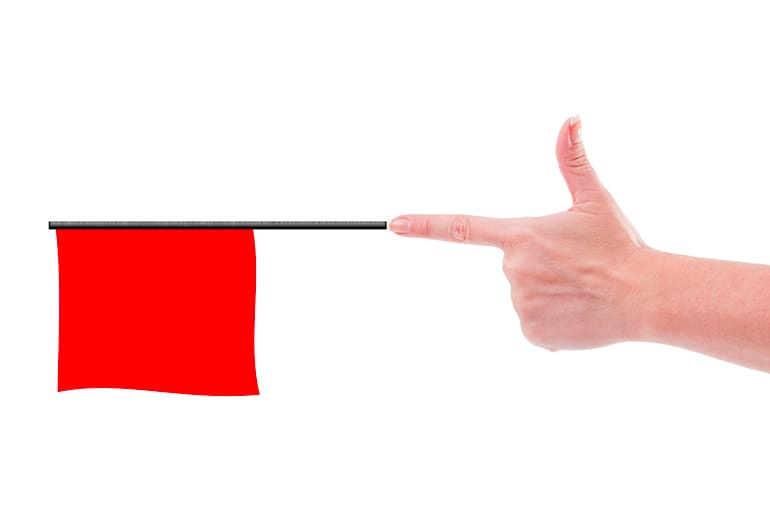What Does Red Flag Law ‘Rapid Due Process’ Mean?

Bigstock
We’ve been writing about the civil rights dangers inherent in so-called red flag laws — gun violence restraining orders, extreme risk protection orders, whatever — since they were first enacted in California. They’re a due process nightmare in which someone (virtually anyone in some states) can petition a court to have an individual’s firearms confiscated.
In most instances, the first indication that someone is the subject of a confiscation order is when they get a knock at their door from the local police with a court order to collect their guns. Only after the fact can the targeted gun owner appear at a hearing to argue why his or her guns should be returned. It’s the worst kind of guilty-until-proven-innocent legal bizarro world.
Red flag laws have already had deadly consequences in one instance and that will probably not be the last such tragic case.
On Monday the President expressed support for a red flag law with “rapid due process.”
[W]e must make sure that those judged to pose a grave risk to public safety do not have access to firearms, and that if they do, those firearms can be taken through rapid due process. That is why I have called for red flag laws, also known as extreme risk protection orders.
Exactly what “rapid due process” means is anyone’s guess. No such protections have been included by any of the states that have enacted the laws so far.
Dana Loesch has a good take on the subject at The Federalist, bringing up a number of concerns we’ve expressed here. Never mind the potential for abuse of these laws by vindictive ex-spouses, or those who would want to trigger the equivalent of a legal SWATing.
Loesch brings up the laws’ reliance on government bureaucrats and agencies to administer them..the same people who failed in cases like the Charleston shooting, the Washington Navy Yard shooting, the Sutherland Springs shooting, the Parkland shooting, among others.
There is nuance to be had here, for sure, but realize that it is an abrogation of due process to invert the order of “innocent until proven guilty” to “somewhat guilty until proven innocent.” The question isn’t whether these laws do this, the question is whether you feel comfortable giving up a cornerstone of our republic for a safety dependent upon enforcement by a government that has failed at this before.
The murderers in Parkland, Florida and Dayton, Ohio, are two recent examples. These two monsters were walking red flags with access to firearms and yet, with all of the laws available to adjudicate them ineligible to carry or purchase guns, they continued unabated until the unthinkable. They weren’t stopped.
In fact, the Parkland murderer was coddled by a school district that pretended a refusal to report crime (thereby suppressing their criminal statistics) was the same thing as reducing crime, and they received federal dollars for it. That murderer’s violent behavior (beating his adoptive mother, sending death threats to fellow students, and putting a gun to another person’s head, to list a few offenses) was so well known, teachers had a backup plan in case he decided to become threatening, and he was searched every morning after arriving at school.
We didn’t need red flag laws to get either of these individuals before they committed their crimes. According to numerous local reports, had the previous Broward County sheriff performed his duties, case number 18-1958 would not have been able to legally purchase the rifle he used to carry out his evil. From everything reported on the Dayton murderer, it seems barring him from legal purchase or possession of firearms by adjudicating him mentally unfit was entirely possible.
But in the future, they’ll totally be able to tell — with unerring accuracy — who presents a danger sufficient to have their Second Amendment rights suspended or revoked.
You may also like
-
Urgent! Wisconsin Dems Ambush Gun Owners with Pre-July 4th Holiday Gun Control
-
Urgent! Wisconsin Dems Ambush Gun Owners with Pre-July 4th Holiday Gun Control
-
The gun control crowd is back in Madison
-
The Latest California Anti-Gun Brainstorm New York Wants to Import: Gun Owner Liability Insurance
-
GET OUT AND VOTE STARTING MARCH 18TH FOR BRAD SCHIMEL
